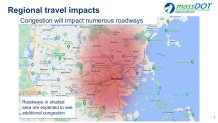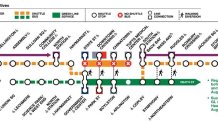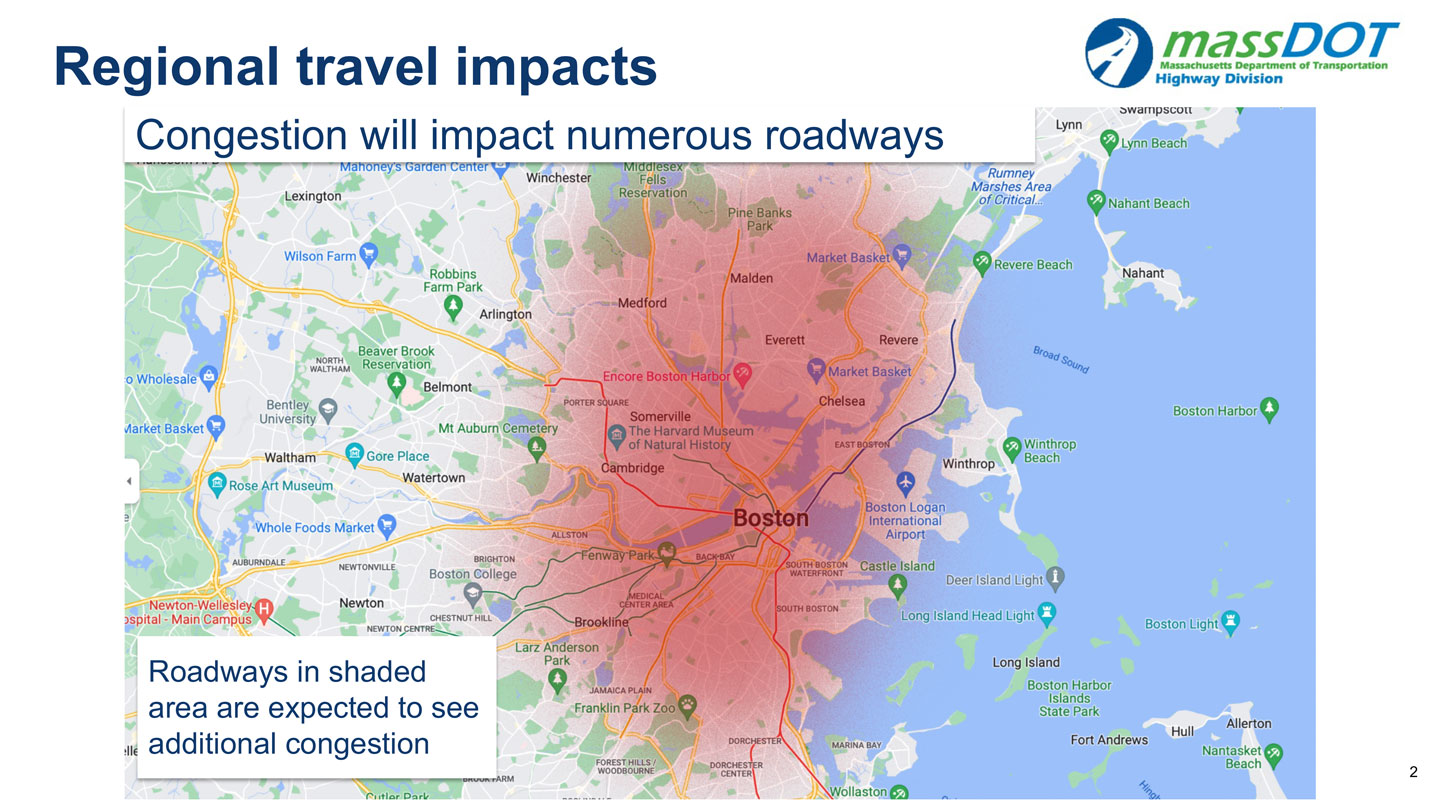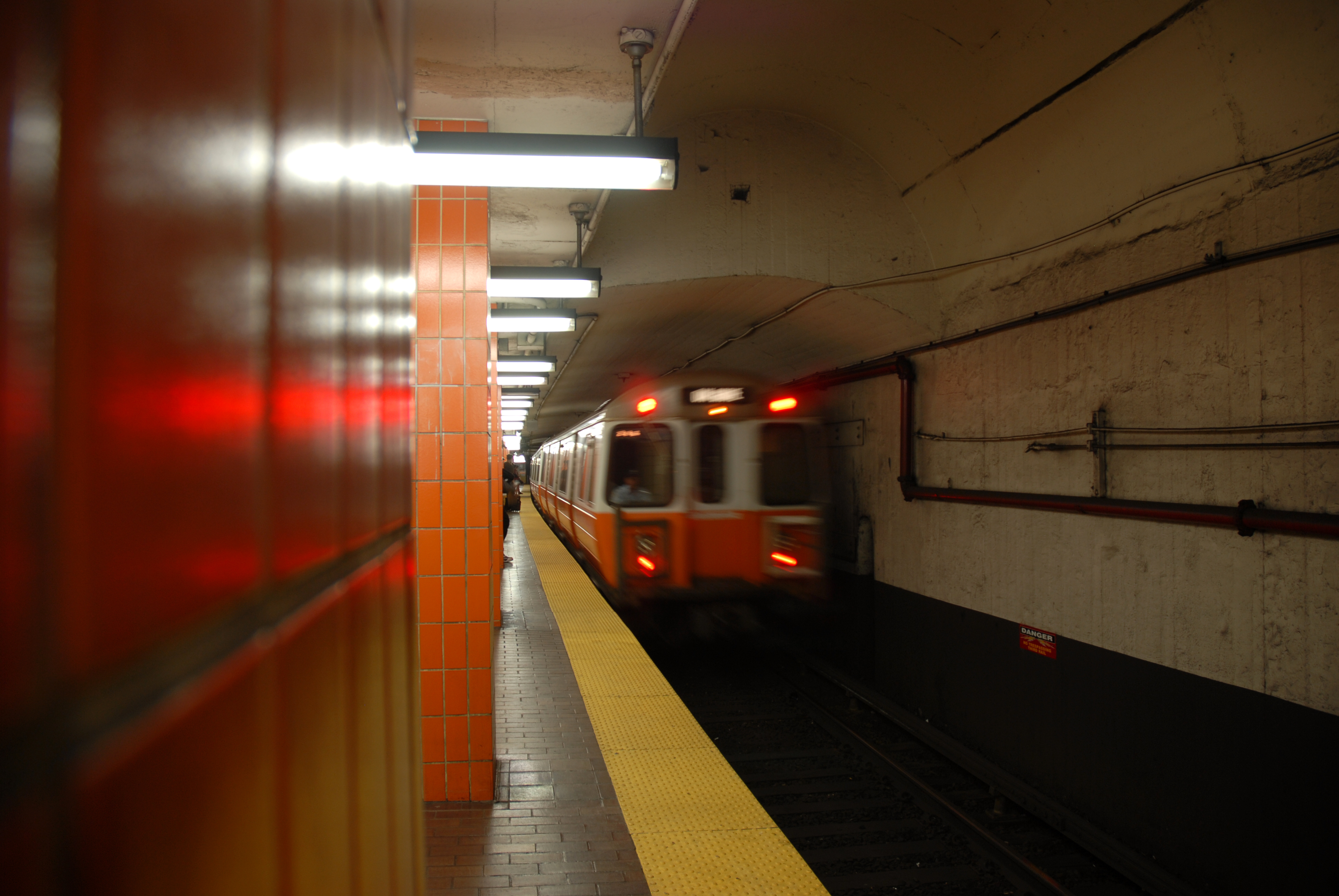How bad is traffic expected to get during the Orange and Green line shutdowns starting in the next week? Bad enough that the head of the Massachusetts Department of Transportation said drivers should avoid downtown Boston entirely, if they can.
About 100,000 people take the MBTA Orange Line every day post-pandemic, but many more are expected to feel the pain of the subway line's 30-day shutdown, which starts later this week. State travel officials warned Monday that roads around Boston will be tied up with extra drivers while Orange Line trains aren't running from Aug. 19 to Sept. 18 and Green Line trains don't run past Government Center from Aug. 22 to Sept. 18.
And it's not just because people who would be taking the subway will be driving instead — in fact, they're actively being discouraged from doing that — but also because surface streets will have to accommodate shuttle buses.
Get Boston local news, weather forecasts, lifestyle and entertainment stories to your inbox. Sign up for NBC Boston’s newsletters.
"Traffic congestion is expected to be severe," Massachusetts State Highway Administrator Jonathan Gulliver said at a news conference, adding, "If possible avoid the region all together until the diversion has concluded."
Here's what commuters should expect on the roads during the round-the-clock repair work:
Where Commutes Will Be Impacted During the Orange Line Shutdown
Officials expect additional congestion on roads far beyond where the Orange Line and Green Line run.
But officials discouraged Orange Line riders from driving. Gulliver described it as "not a good option," with highways around Boston, Somerville, Chelsea, Everett, Malden, Medford, Revere, Cambridge and Brookline expected to be busier than usual.
"All roadway users, whether you drive, bike or walk, you will see changes in your everyday commute, and your commute will likely be longer in these areas," Gulliver said.

Massachusetts Department of Transportation engineers modeled how bad congestion is expected to get in Boston during the morning commute while Orange and Green line service is suspended in August and September. Use the slider to see the before and after.
Here's what the Department of Transportation said about traffic impacts beyond Orange Line in a release, noting that "all travelers ... are strongly encouraged to avoid driving through the area altogether" and work from home if they have to:
Starting on Monday, August 15, MassDOT’s Highway Division has advised that travelers of all modes throughout the Orange Line corridor will experience increased traffic congestion as a result of roadway modifications necessary to support the MBTA’s replacement bus shuttles. The modifications will occur at numerous points along the shuttle routes and range from reconfiguring travel and turning lanes, curb work, installation of designated bus lanes at various locations, and changes to traffic signal timing at multiple intersections.
Following the full Orange Line shutdown, regional traffic congestion is expected to increase substantially. At that time, all travelers across all modes are strongly encouraged to avoid driving through the area altogether, work from home if possible, consider rescheduling trips through the area that are not absolutely necessary, or for necessary travel, expect significant traffic congestion and travel delays.
Adonis Duarte, who drives into the city for work every day, wasn't excited to learn Monday his commute was about to get more chaotic.
"There is going to be traffic everywhere, there is going to be traffic no matter what," he said.
Where Will Shuttle Buses Run?
Shuttle buses won't be running the entire Orange Line route while the train is out of service, meaning riders going from south of downtown Boston to north of it will need to transfer at least once, and likely more than once.
The free shuttle buses — contracted charter buses, not typical MBTA buses — will run between Oak Grove and Government Center and between Back Bay and Forest Hills stations. In downtown Boston, passengers can walk between stations, transfer to the Green Line or use the Silver Line to get around.

MBTA General Manager Steve Poftak said Monday that shuttle service wasn't practical on downtown's cramped streets.
Will Commuter Rail Service Increase?
Officials are urging Orange Line riders to take Commuter Rail if possible. It will be free to anyone who shows a CharlieCard or CharlieTicket at stops in zones 1, 1A and 2.
Service is being increased south of Boston, Poftak said — seven trains will run from Forest Hills to South Station in the mornings, with four traveling from Oak Grove to North Station.
See the updated schedule in the MBTA's "Rider's Guide to Planning Ahead," which also has more details on how to get around while the Orange and Green lines are being fixed.



